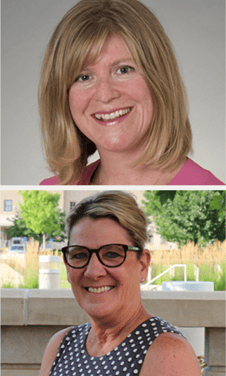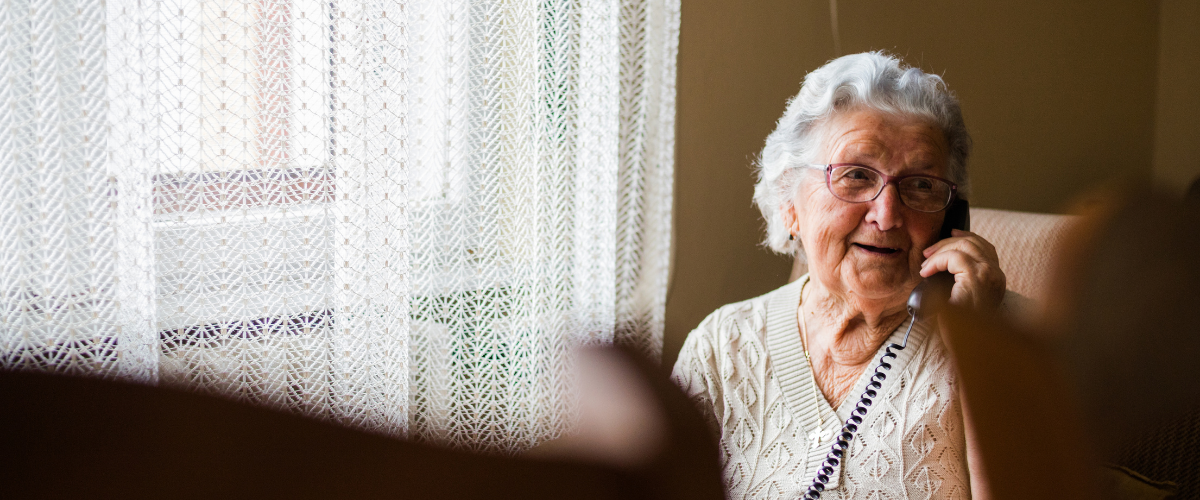Pivot might be the word of the past year. With COVID-19 continuing into fall of 2020, the CU Pharmacy PharmD program needed to develop a new plan to fit its service-learning curriculum. Previously fulfilled by an elementary school education program, with K-12 schools in limbo, the department got creative – and fulfilled an un-met community mental health need for isolated older adults.
After reading an article in the CU Anschutz newsroom about a new multidisciplinary geriatric program on campus, Dr. Dana Hammer, Senior Instructor of Clinical Pharmacy, and Patricia Meyer, Sr. Student Services Specialist for Experiential Programs, reached out to the Division of Geriatric Medicine and its UCHealth Seniors Clinic to brainstorm unique ways for CU Pharmacy students to get involved.
“When I read the article, I reached out to one of our faculty, Dr. Scott Pearson, [who also works with the Division of Geriatrics] to ask if we might be able to connect our first-year students with socially-isolated older adults to make regular social phone calls with them,” Hammer said. “Scott connected us to the right folks, including faculty members in the School of Medicine and the College of Nursing, and now we have this awesome program!”

Dr. Dana Hammer, top, and Patricia Meyer knew they needed a creative solution for their students to succeed. |
The Connecting Older Adults to Students through Interprofessional Telecare (COAST-IT) program connects first-year pharmacy students to older adults in supportive and independent living with the goal of developing relationships, allowing the students to practice their communication skills, and breaking the cycle of isolation for older adults increasingly spending their days physically distanced from the outside world during a pandemic.
The partners connect via telephone a minimum of twice a month. Students are given a manual and loose script to guide the conversation, along with what to do in case any medical questions or ‘red flag’ comments arise during their social time.
With one fall semester complete, Spring semester halfway though, and a year of the pandemic under their belt, the program has seen its share of challenges and changes.
“We originally included long-term care and assisted living residents, and realized we had some communication barriers with that,” Meyer said. “Sometimes using the telephone was hard for the older adults."
Through trial and error, the program landed on its current partnerships, which are thriving. One senior housing community manager reported that her residents were honored to be a part of COAST-IT.
“Thank you ever so much for following through on this,” she wrote. “[The residents] are thrilled to have [the students] call.”
With so many CU entities jumping on board, what started as a pivot plan is now a new campus-wide initiative. Fitting, as so many students in the coming years will be working with older adults and an aging population; honing their communication skills is extremely important to become better clinicians.
“As we see more of the population age, this kind of experience is especially important to all of our students on campus,” said Jodi Waterhouse, Program Manager for CU Anschutz The Multidisciplinary Center on Aging. “This program is offering an important piece of training for our students to prepare them for real-life practice.”


